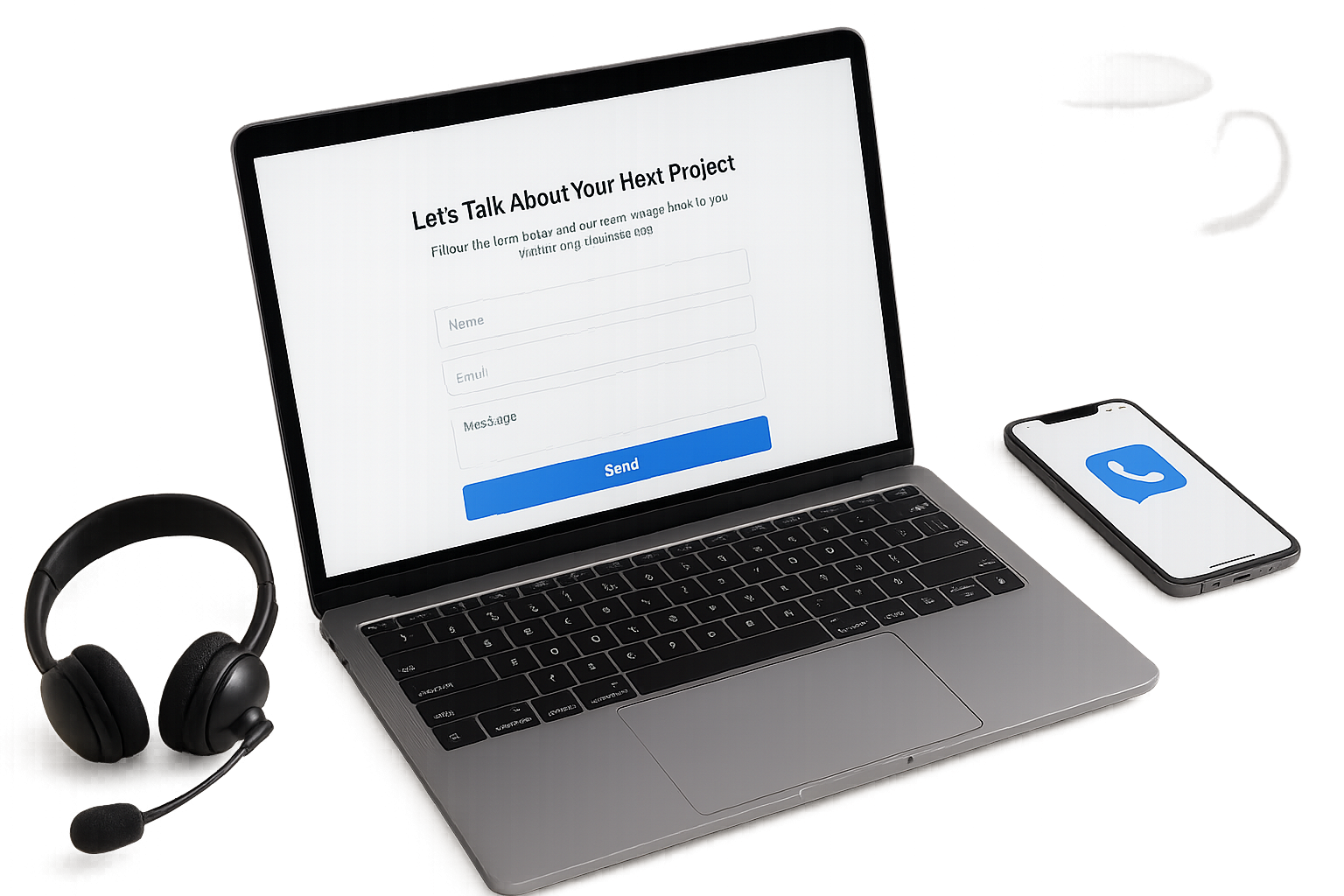Psychologist Websites: Essential Features, Costs, and Importance

Why Does a Psychologist Need a Business Card Website to Stand Out?

In today’s digital landscape, a business card website for a psychologist is not just an option; its a necessity. With over 80% of clients searching online for mental health services, having a significant online presence can set you apart from the competition. But why specifically does a psychologist need a dedicated website? Let’s dive deep into this critical question and explore how it can benefit your practice.
The Power of First Impressions
Your website acts as your digital business card. It’s often the first connection potential clients will have with you. A well-designed site can convey professionalism, compassion, and expertise, which are crucial in a field like psychology. Imagine Jane, a 28-year-old woman feeling lost in her life. She searches online for solutions and stumbles upon two psychologists. One has a polished, informative website, while the other has just a social media page. Which one is she likely to choose? The answer is obvious.
Enhancing Credibility and Trust
Modern clients tend to judge credibility based on online presence. A recent study indicates that 75% of users make judgments about a companys credibility based on their website design. This is particularly relevant for psychologists where trust is paramount. A dedicated site with detailed information about your services, qualifications, and approaches can foster confidence in your abilities. Think of your website as a way to show off your credentials and give clients a glimpse into your therapeutic environment.
Attracting New Clients
How can a user-friendly business card website for a psychologist attract new clients? Simple! By optimizing the site with relevant keywords and having a clear call to action, such as “Schedule a Free Consultation,” you can significantly increase your chances of drawing in new clients. Statistics show that websites with regular updates and useful content attract 55% more visitors, enhancing your visibility.
Showcasing Services Effectively
Clients often look for specific services—be it therapy for anxiety, depression, or relationship issues. If your website clearly outlines what you offer, potential clients can quickly identify if you’re the right fit. Use engaging visuals, testimonials, and in-depth descriptions to showcase your expertise. Here’s a snapshot table illustrating the potential services you might highlight on your site:
| Service | Description | Estimated Cost |
| Individual Therapy | Personalized sessions focused on individual needs. | €120/session |
| Couples Therapy | Therapy designed to help partners improve their relationship. | €150/session |
| Group Therapy | Facilitated sessions with small groups tackling specific issues. | €80/session |
| Workshops | Interactive sessions on various psychological topics. | €50/participant |
| Online Consultations | Flexible sessions over video chat for convenience. | €100/session |
| Employee Assistance Programs | Support for workplace mental health initiatives. | Contact for pricing |
| Psychometric Testing | Assessments to understand psychological profiles. | €300/full assessment |
| Family Therapy | Sessions aimed at resolving family dynamics. | €130/session |
| Childrens Therapy | Specialized sessions for young clients. | €100/session |
| Consultation for Schools | Advice and programs for enhancing student well-being. | Contact for pricing |
Cost Efficiency
Many psychologists wonder, “How much money is needed to create a website?” The question is often met with uncertainty, but at Nexrilo Studio, we offer affordable solutions. For instance, a business card website development on a Wordpress template goes for just €600. We ensure your investment yields a high return by attracting more clients effectively. Investing in your web presence pays for itself through increased clientele; after all, aren’t clients worth their weight in gold?
Encouraging Client Engagement
Another significant benefit of having your website is the ability to engage with clients continuously. Through blogs, newsletters, and online forums, you can share valuable information and updates about various mental health topics, keeping your audience informed and engaged. This interaction encourages potential clients to reach out when they need support.
In conclusion, having a dedicated business card website for a psychologist is crucial in todays digital age. A well-structured site not only enhances your professional image but also fosters trust, engages potential clients, and clearly lays out your offerings. Ready to take your practice to the next level? Call us today at [email protected] or visit nexrilo.com to get started with your new website!
Frequently Asked Questions
- What is a business card website?
- Why does a psychologist need a website?
- How much does it cost to create a psychologists website?
- What essential features should be on my website?
- Can I update my website myself?
- Will my website help in patient retention?
- What platform do you recommend for building my site?
- How quickly can you build my website?
- Do you provide support after the website is built?
- Is my website secure?
A simple, single-page site that provides essential information about your practice.
To enhance visibility, credibility, and attract new clients.
The price varies; our business card website development starts at €600.
Contact info, services offered, client testimonials, and an engaging design are key.
Yes, we offer systems that allow easy updates.
Absolutely, regular updates and informative content keep clients engaged.
WordPress is user-friendly and versatile for psychologists.
Typically, 2-4 weeks, depending on complexity.
Yes, we offer various support plans!
We ensure robust security features to protect client information.
What Should a Psychologists Website Be Like to Attract New Clients?
In an era where your business card website for a psychologist can be the gateway to new clients, it’s crucial to ensure that your site is not only visually appealing but also functional and informative. How can you make your website stand out? Let’s break down the essential components that every psychologist’s website should include to attract clients effectively.
User-Friendly Design Matters
First impressions are everything! Your websites design should be intuitive, making it easy for visitors to navigate without frustration. Imagine Sarah, a 35-year-old mother, looking for a local psychologist online. She quickly clicks away from an overly complicated site and stays on one that is straightforward to use. Invest in clean layouts, easy-to-read fonts, and a cohesive color palette that reflects calm and professionalism. Approximately 94% of first impressions are related to web design, so dont underestimate its importance!
Responsive and Mobile-Friendly
With roughly 54% of internet traffic coming from mobile devices, having a mobile-responsive design is a must. Your website should look and function seamlessly across all devices. If Sarah is on her phone searching for assistance, a site that doesn’t adjust accordingly will likely turn her away. This is where a business card website for a psychologist plays a critical role, providing easy access to information on-the-go.
Clear Service Offerings
Be sure to list your services clearly! Potential clients need to understand what you offer at a glance. Whether its individual therapy, couples counseling, or group sessions, each service should have a dedicated section with a brief description. Use bullet points to make this information easily digestible:
- Individual Therapy: Personalized sessions tailored to your needs.⭐
- Couples Counseling: Support for building healthier relationships.⭐
- Group Therapy: Engage with others facing similar challenges.⭐
- Child Therapy: Specialized care for young clients.⭐
This clarity helps potential clients assess whether you are the right fit for their needs!
Incorporate Client Testimonials
Nothing speaks louder than the experiences of previous clients. Incorporate glowing testimonials on your site to build trust. Consider including a dedicated section or even a rotating banner featuring client feedback. Testimonials can help to bridge the gap of uncertainty that many individuals feel when reaching out for psychological services.
Effective Call to Action
Your website must feature compelling calls to action (CTAs) that encourage visitors to take the next step. For instance, phrases like "Schedule Your Free Consultation Today!" or "Contact Us for More Information!" can motivate potential clients to reach out. Statistically, using a clear CTA can increase conversion rates by up to 200%. Dont leave it to chance—direct them on what to do next!
Engaging and Informative Content
Provide valuable resources such as blog posts or articles related to mental health topics. If Sarah visits your site and finds insightful articles about coping strategies for anxiety, she’s more likely to feel connected to you. Content marketing not only establishes your authority but can also improve your websites search engine ranking, making it easier for new clients to find you. Sharing your expertise can draw in visitors, encouraging them to reach out for services.
SEO Optimization
How can you make sure potential clients find your website? Search engine optimization (SEO) is key. To attract new clients effectively, utilize relevant keywords throughout your website. Ask yourself: What should a psychologists website be like? One that ranks well on search engines! Incorporating keywords such as "business card website for a psychologist", "find a psychologist", and "psychologist near me" can boost your visibility significantly. Remember, 75% of users never scroll past the first page of search results!
Easy Contact Options
Lastly, ensure that potential clients can easily contact you. Include a contact form, your phone number, email address, and links to social media profiles. Offering multiple avenues for communication can help potential clients feel comfortable reaching out. Providing clear contact options increases their likelihood of doing so—it’s like rolling out the welcome mat for them!
In summary, a successful psychologists website should be aesthetically pleasing, user-friendly, and packed with valuable information. Implementing these core components—effective design, clear service descriptions, client testimonials, and optimized SEO—can significantly enhance your chances of attracting new clients. Ready to elevate your psychological practice with an exceptional website? Reach out to us at [email protected] or get started by visiting nexrilo.com.
Frequently Asked Questions
- What makes a good psychologist website?
- How can I improve my websites SEO?
- Why is mobile-friendliness important for my site?
- How often should I update my website content?
- What should I include in my contact section?
- Can a blog help attract new clients?
- How can I measure my websites effectiveness?
- Should I use photos of myself on my website?
- What is a CTA and why is it important?
- Is there a specific design style ideal for psychology websites?
A clear layout, mobile responsiveness, informative content, and trust-building testimonials.
Incorporate relevant keywords, optimize page loading speed, and create quality backlinking.
Its essential for user experience and capturing traffic from mobile users, who comprise over half of internet users!
Regular updates—at least monthly—keep your audience engaged and help with SEO.
Your phone number, email, a contact form, and links to social media platforms.
Yes, sharing informative and engaging articles builds your authority and draws visitors.
Use analytics tools to track visitor behavior, conversion rates, and engagement metrics.
Yes! Professional photos add a personal touch and help clients feel more connected.
A call to action directs visitors on what to do next, increasing the chances they will reach out.
Opt for calming colors, clean lines, and a professional look to create a reassuring environment for potential clients.
Fill out the form below and our team will reach out within one business day
